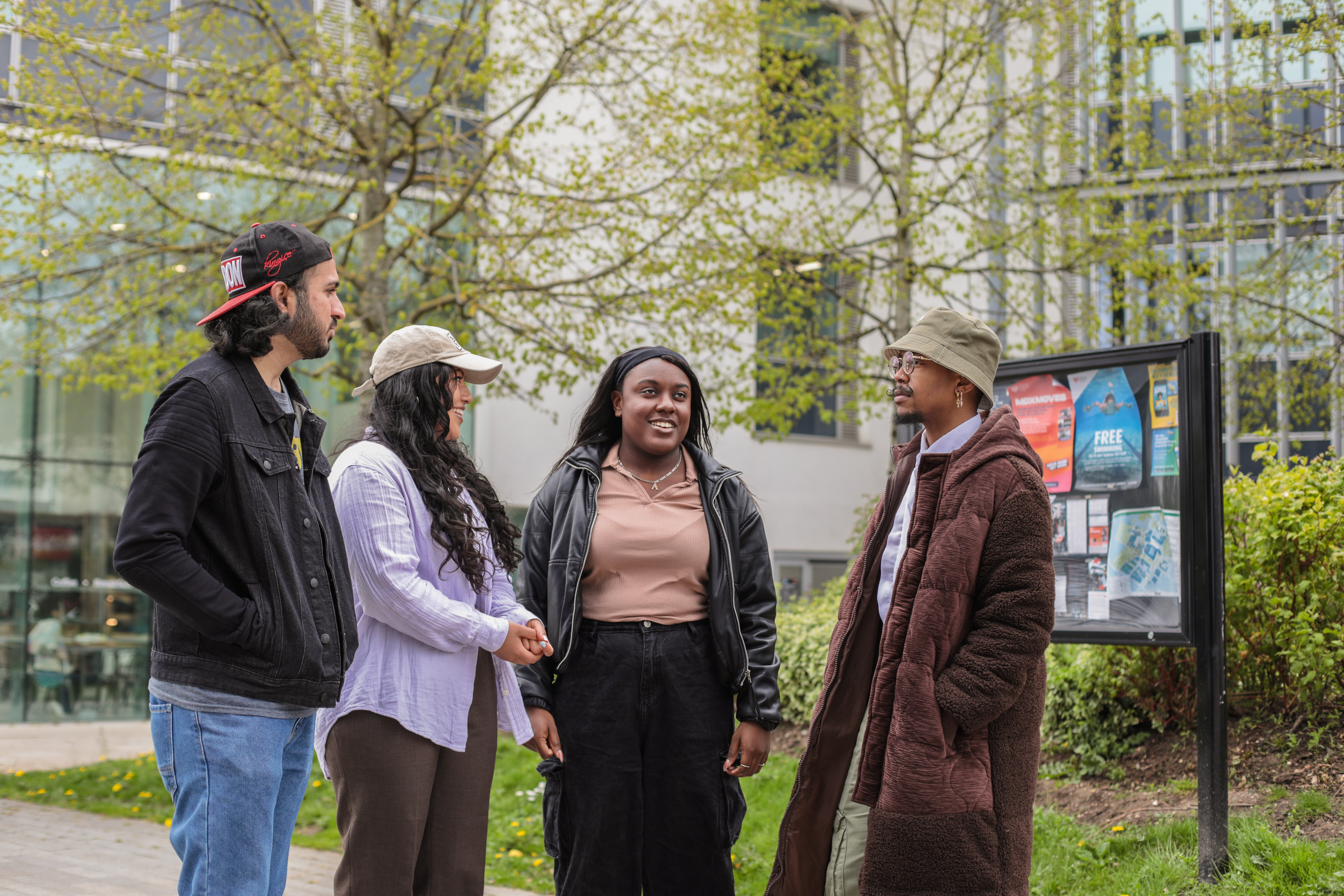From 15 July, UniHub, myUniHub will begin to be decommissioned and content will be available on MyMDX (formerly MDXapp). These changes are designed to create a better digital experience for you as a student.

At #TeamMDX, we encourage you to look after your health proactively by engaging in self-care to look after your wellbeing. According to the World Health Organisation, health is a state of complete physical, mental and social well-being and not merely the absence of disease or infirmity.
To keep yourself healthy through your time at university then, you need to develop healthy self-care routines. Self-care can mean different things to different people.
There are several support services that you will necessarily come into contact with through your time at Middlesex, and others that you may only engage with if you need some additional support to be the most successful student you can be. Our Student Support and Wellbeing teams are on hand for just that.


Self-care can be anything that promotes your wellness. It is good to think of self-care routines that are sustainable – that you can maintain over longer periods of time and through more challenging times as a student.

You should register with a GP close to your term time address as soon as possible. Make sure your vaccinations for Meningitis; Measles, Mumps and Rubella (MMR) and COVID-19 are up to date.
Being physically active helps to maintain a healthy weight, lowers blood pressure and supports normal muscle and bone strength. Physical activity is also beneficial to mental health including improving mood, reducing stress, increased self-esteem and in the management of depression and anxiety.
Make sure you're keeping yourself physically healthy is an important part of your wellbeing. Here at #TeamMDX, we offer a variety of activities to keep you active.

Information, support and resources if you are grieving, or if you are supporting a friend through grief.

Being away from home can be the perfect opportunity to indulge in new foods and feed your sweet tooth. But just like getting enough sleep, eating a balanced diet can make a world of difference to your studies and to your mood. Research shows that what we eat has a direct impact on not only brain function and your mood.
Your sexual health is a vital part of your wellbeing and is nothing to be embarrassed about. Just like your physical and mental health, you can take care of your sexual health through self-awareness and sensible precautions. However, if you need some support, there's plenty of help available.

Getting good quality sleep is an important part of our wellbeing. Keeping regular sleep hours, creating a restful sleeping environment, being physically active and getting outdoors in the day, being mindful of eating and drinking habits, and managing worries are all part of good sleep hygiene.

Students are more likely to drink, smoke and take drugs than the general population. Be aware of the dangers associated with addictive substances so that you can make informed decisions about the way you live your life and care for your health, and know where to get support should you need this.

You can support your mental health by developing self-care habits like eating well, getting enough sleep, moving your body, talking about your feelings, keeping in touch with people you care about, and most importantly, asking for help when you need it.

Coming to university is an exciting and liberating time, but you may be feeling anxious about your identity. Perhaps you are not ‘out’ to your peers, perhaps you aren’t ready, perhaps you don’t have the support of your family. Or maybe you are ‘out and proud’! Either way, we want you to know that at #TeamMDX we accept you just as you are.
We recognise that domestic abuse is a widespread problem that can affect victims both physically and mentally. It is not restricted to purely impacting on an individual’s personal life.
We are committed to highlighting the support that is available to those that are experiencing or have experienced domestic abuse.

Starting university is a wonderful time for students and we're committed to providing a supportive and welcoming environment, promoting good health and wellbeing for all. Moving away from home and coming to university marks a period of transition for them but also for you as their parent, carer or guardian.

At university it's quite common to come into contact with different illnesses. Infections can spread quickly due to close living arrangements and being part of larger and new social circles.

Here you'll find the information you need on how we can support you during this time, and also what’s expected of you.

I am a carer and want to know what support I’m entitled to.